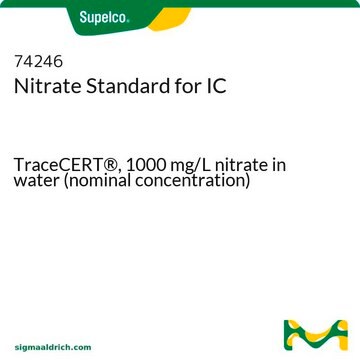1602003
USP
Resorcinol
United States Pharmacopeia (USP) Reference Standard
Synonym(s):
1,3-Benzenediol
About This Item
Recommended Products
grade
pharmaceutical primary standard
vapor density
3.8 (vs air)
vapor pressure
1 mmHg ( 21.1 °C)
API family
resorcinol
autoignition temp.
1126 °F
manufacturer/tradename
USP
bp
178 °C/16 mmHg (lit.)
mp
109-112 °C (lit.)
application(s)
pharmaceutical (small molecule)
format
neat
storage temp.
2-8°C
SMILES string
Oc1cccc(O)c1
InChI
1S/C6H6O2/c7-5-2-1-3-6(8)4-5/h1-4,7-8H
InChI key
GHMLBKRAJCXXBS-UHFFFAOYSA-N
Looking for similar products? Visit Product Comparison Guide
General description
Application
- Fluorescein Injection
- Fluorescein Sodium
- Resorcinol
- Resorcinol and Sulfur Topical Suspension
Analysis Note
Other Notes
related product
Signal Word
Danger
Hazard Statements
Precautionary Statements
Hazard Classifications
Acute Tox. 4 Oral - Aquatic Acute 1 - Aquatic Chronic 3 - Eye Dam. 1 - Skin Irrit. 2 - Skin Sens. 1B - STOT SE 1 Oral - STOT SE 2 Oral
Target Organs
Central nervous system,Blood, Respiratory system
Storage Class Code
6.1C - Combustible acute toxic Cat.3 / toxic compounds or compounds which causing chronic effects
WGK
WGK 2
Flash Point(F)
Not applicable
Flash Point(C)
Not applicable
Certificates of Analysis (COA)
Search for Certificates of Analysis (COA) by entering the products Lot/Batch Number. Lot and Batch Numbers can be found on a product’s label following the words ‘Lot’ or ‘Batch’.
Already Own This Product?
Find documentation for the products that you have recently purchased in the Document Library.
Customers Also Viewed
Our team of scientists has experience in all areas of research including Life Science, Material Science, Chemical Synthesis, Chromatography, Analytical and many others.
Contact Technical Service







